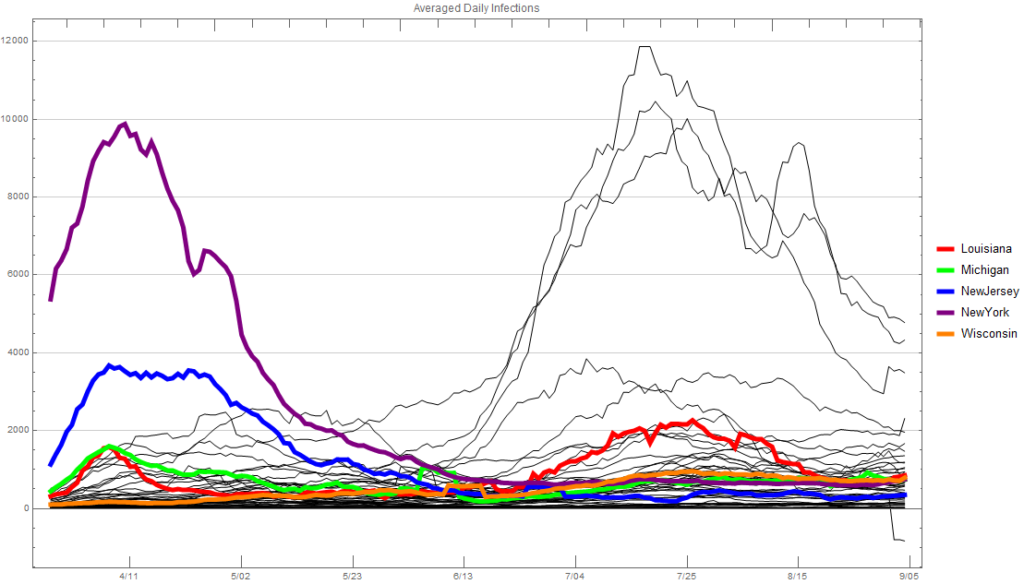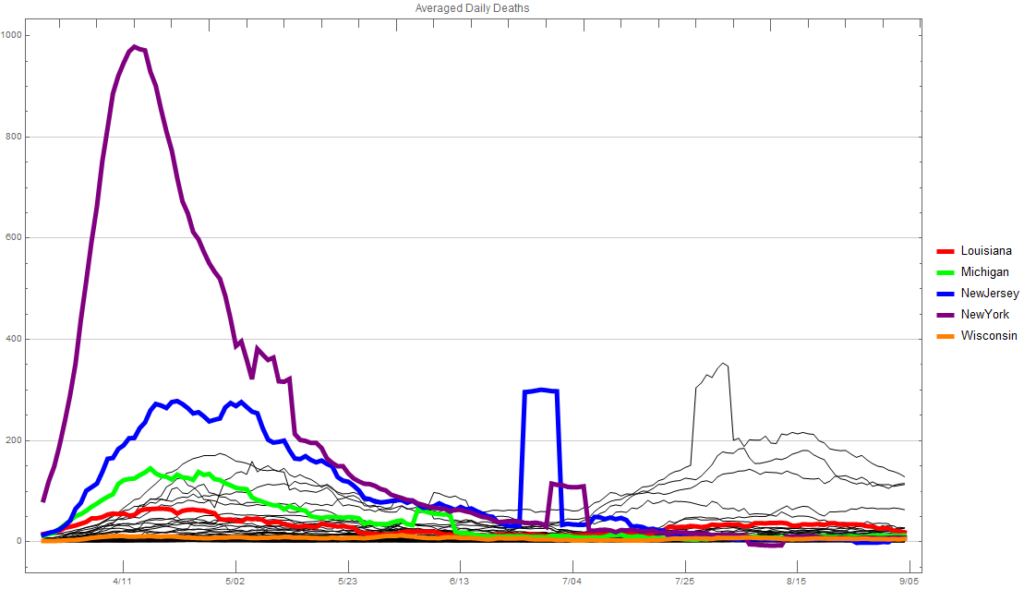There has been a lot of crime and violence during the recent protests. As a white man I am not going to claim that I understand the experience of African Americans in this country – I do not. However because of recent experiences in my life I have had a very small glimpse of what it feels like to be helpless against a legal system, a society, and a government that seems to not care at all about you. This experience has given me the ability to better empathize with those who are currently protesting.
I’m old enough to recall the LA riots that occurred after the Rodney King arrest. This was in 1992 when I was 22 years old and just about to graduate from college. I could not understand why people resorted to crime during these times. I assumed the crimes were committed by criminals that simply saw an opportunity during the chaos to steal and vandalize, but my views have very much changed since that time. While I certainly do not condone vandalism, looting, arson, or any kind of crime (particularly violent crime) I have a very different picture of what might be going through the minds of the people committing these crimes during a protest. I believe one huge motivator for these outbursts is revenge. Almost everyone understands the desire to seek revenge. At some point, most people have been treated unfairly and had vengeful thoughts.
What I think most people have not experienced is the desire to seek revenge against something and not someone. When you feel like society and our legal system as a whole have wronged you, it is hard to focus your anger on a particular individual or group of individuals. When it is society against which you want revenge, that anger can come out in very different ways, and when it is a large group of people feeling they’ve been wronged you see many different acts of defiance. For example, I saw a Target store being looted. Maybe some people simply saw this chaos as an opportunity to steal a nice television. However, you have wonder if some of those people felt they’d been wronged by that Target. Maybe a security guard was following them around for no reason, or maybe they were treated poorly. But, how do you get revenge against Target? You can stop shopping there but that would likely have little effect. Plus, that is really not a satisfying way to get revenge. You could picket in front of Target, write letters, make blog posts, or publish what happened in other forums, but maybe you lack the time and resources for these pursuits. Even if you are able to take these actions, you may fear that no one would truly listen and nothing would be done.
I experienced first hand that desire for revenge about seven years ago. If you’re aware of what’s happened in my life over that period you may think it’s actually a person or a few people against whom I’ve thought about seeking revenge. I can assure you that it is most definitely not true. Although there were a few individuals that contributed to my suffering, I don’t blame any individual(s) for the things that happened. It is really a system and institutions that I blame the most. I have had many many hours and days with nothing to do but ponder ways in which to get revenge against these institutions, and I came up with plenty of ideas. I’m not going to disclose my ploys, as I never carried any of them out and have no plans to do so. While I may be intelligent enough to have come up with some really good plans, most acts of revenge against an institution involve doing something illegal. I am no master criminal and am under no delusion that I’m smarter than the combined experience and intelligence of law enforcement. Thus, no matter how “brilliant” I think a plan might be, I would never think there is no way I’d get caught. Plus, while none of these plans ever involved hurting someone, I could always envision how an individual might be harmed, and that was something that was simply not acceptable to me. I have a lot to look forward to in my life and getting caught and punished would severely hamper those things.
You may be wondering then how I can say I understand the actions taken by some individuals during these protests. It’s really simple; the risk-reward trade-off for me is probably very different than for most of the people taking these actions. While I’m sure none of them want to get caught, I suspect many do not see a bright future ahead. While a few months in jail is certainly no fun, when you really have nothing else to look forward to for those few months and think it’s not going to have a negative impact on your future, the calculus changes and the rewards start to outweigh the risks. Plus, when part of the reward is the feeling of getting revenge, it is much easier to justify your actions in your own head.
Part of the risk of getting caught for most people is the possibility of going to jail or prison. It’s not only that people don’t want to be incarcerated, it’s that there’s a huge fear of the unknown; you have no idea what it will be like or how you might fit in. However, once you’ve been in jail or prison that fear is gone, and I suspect for most people the experience is likely not nearly as bad as they imagined. In fact, your life incarcerated may not really be much worse than your life free. I certainly heard this from quite a few inmates.

I don’t know how many of these protesters have spent time in jail/prison (old statistics from the Department of Justice show about 20% of African Americans have been incarcerated by the time they are 30), but given the unfair treatment by law enforcement that they are protesting, I would guess that the number is unfortunately high. Thus the fear of the unknown that is prison may not be a consideration for many of these people. Sadly many may very well feel that they have nothing much to lose, and that this last resort behavior is justified. Additionally, it is also human nature to somewhat mute bad experiences, making someone’s time being incarcerated not seem nearly as bad as it was at the time. I can certainly related to this.
The final reason I can understand the destruction is that it is so frustrating to feel like your voice is not being heard. You say over and over that there is a problem and no one listens. You say over and over that something is unjust and no one listens. The news pays attention for a news cycle which lasts at most a couple of week. For example, when was Ahmaud Arbery last in the news? The frustration builds as you see more and more injustice happening and no one in power doing anything about it, even if it’s not clear what the best course of action is. Destruction is one way of making your voice heard even if no one actually hears your voice. It keeps the media’s attention. While I do not suspect there is some larger, deeper plan to destroy things to keep the focus on the problem, I can understand the desire to act out when you feel your needs are not being met and think no one is listening; this is a natural and very human reaction that we are all born with.
Another part of the problem here is also that those who are supposed to be there to protect people (law enforcement) are the ones that are causing harm. The sense of betrayal here is immense – it’s a similar dynamic to a child that is being abused by a parent or teacher. Over time the relationship gets extremely warped and the child will likely lash out eventually. Unfortunately, this aggression is often not directed at the person that abused them, but at their own children or others around them.
I will leave you with a clip from a show I saw in early 2013 when I was feeling a lot of hate and anger. It really resonated with me then and it still does.





You must be logged in to post a comment.